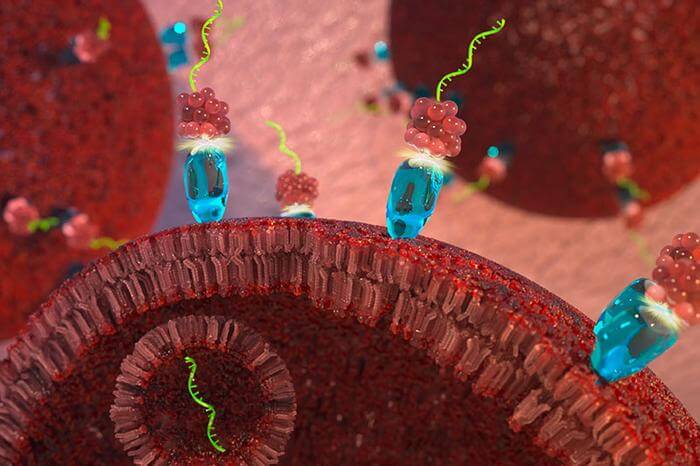Purdue University researchers have developed a promising cancer therapy that exploits a unique method to disrupt tumor growth. Their approach, tested in mouse models, involves a delivery system that precisely targets cancer cells with a modified version of microRNA-34a, a molecule that plays a crucial role in slowing or stopping cell division.
The therapy significantly reduced the size of tumors in the study, in contrast to untreated tumors, which tripled in size over the same time frame. Notably, the modified microRNA-34a also suppressed the activity of several genes, including MET, CD44, and AXL, known to drive cancer and resistance to other treatments for an extended period, providing a potential avenue to combat drug-resistant cancers.
MicroRNA-34a is a short double strand of ribonucleic acid (RNA) that is naturally abundant in healthy cells but reduced in many cancer cells. To make this therapy effective, the research team had to overcome several challenges. They stabilized microRNA-34a by adding clusters of atoms along its length, and they attached it to a molecule of vitamin folate to ensure it could enter cancer cells.
The therapy’s targeted specificity not only reduces the required compound dose but also lowers potential toxicity and side effects. Purdue researchers plan to proceed with clinical trials for this innovative cancer therapy.
This research was conducted by Andrea Kasinski, Philip S. Low, Nadia A. Lanman, Ahmed M. Abdelaal, Harish Kothandaraman, Kasireddy Sudarshan, Shreyas Iyer, and Ikjot S. Sohal. The study was published in the journal Oncogene and received support from the National Institutes of Health and the Department of Defense.
Kasinski and her team have disclosed the innovation to the Purdue Innovates Office of Technology Commercialization, which has filed a patent application for the intellectual property. Industry partners interested in developing or commercializing this work can contact Joe Kasper, Assistant Director of Business Development, at [email protected].


